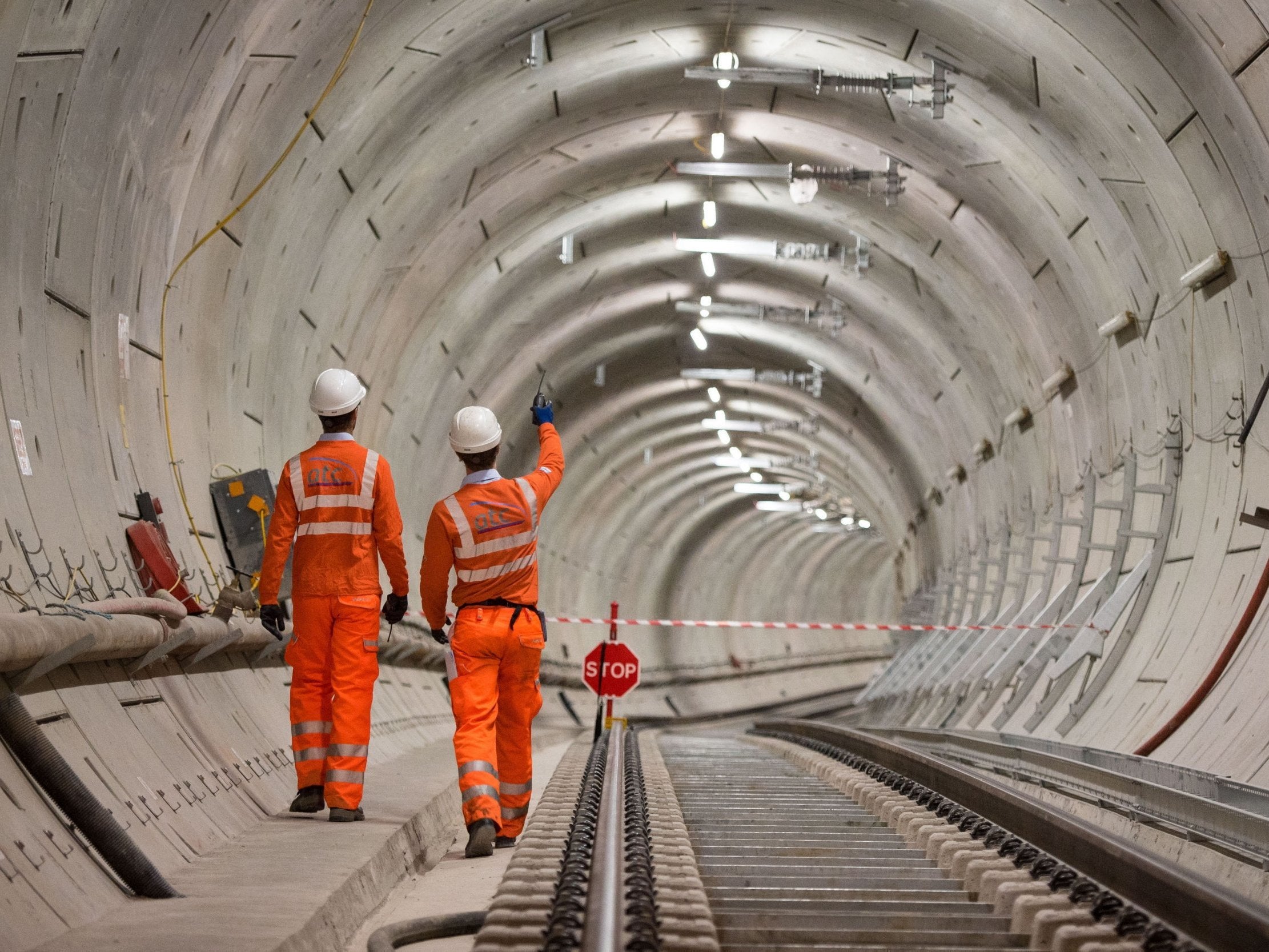Crossrail delayed until 2021 with costs set to hit £20bn
Final cost could be one-third more than original £14.8bn estimate

Your support helps us to tell the story
From reproductive rights to climate change to Big Tech, The Independent is on the ground when the story is developing. Whether it's investigating the financials of Elon Musk's pro-Trump PAC or producing our latest documentary, 'The A Word', which shines a light on the American women fighting for reproductive rights, we know how important it is to parse out the facts from the messaging.
At such a critical moment in US history, we need reporters on the ground. Your donation allows us to keep sending journalists to speak to both sides of the story.
The Independent is trusted by Americans across the entire political spectrum. And unlike many other quality news outlets, we choose not to lock Americans out of our reporting and analysis with paywalls. We believe quality journalism should be available to everyone, paid for by those who can afford it.
Your support makes all the difference.The cost of the much-delayed Crossrail project is heading towards £20bn, and the railway through London will be more than two years late: that is the latest prognosis for the bungled scheme.
The Elizabeth line, as the east-west link will be known when it finally opens, was due to start carrying commuters in December 2018.
But Mark Wild, the chief executive of Crossrail, now says only that it “will open as soon as practically possible in 2021”.
The line will link Reading and Heathrow airport, west of the capital, with Shenfield in Essex and Abbey Wood in southeast London.
It is intended to cut journey times and relieve congestion on the existing infrastructure by boosting rail capacity in the capital by 10 per cent.
Much of the scheme uses existing lines. But the largest part of the cost, and the cause of the delays, is the central core between Paddington and Whitechapel.
While the tunnelling was finished in line with the original schedule, finishing the signalling and stations at Bond Street and Whitechapel is taking far longer than planned.
However, Mr Wild said that software and safety certification were now the biggest blockages.
“The two critical paths for the project remain software development for the signalling and train systems, and the complex assurance and handover process for the railway; both involve safety certification for the Elizabeth line.
“These must be done to the highest quality standards to ensure reliability of the railway from day one of passenger service.
“Crossrail Ltd will need further time to complete software development for the signalling and train systems and the safety approvals process for the railway.”
Trains will start trials “at the earliest opportunity in 2020”, he said.
“We are doing everything we can to complete the Elizabeth line as quickly as we can but there are no short cuts to delivering this hugely complex railway. The Elizabeth line must be completed to the highest safety and quality standards.”
Crossrail Ltd is a wholly owned subsidiary of Transport for London (TfL).
The transport authority has missed out on hundreds of millions of pounds of ticket revenue in the 11 months since the line was due to open.
Now TfL and the Department for Transport (DfT) will need to find increased funding for the scheme.
Crossrail’s chief executive said: “The project’s costs will increase due to programme risks and uncertainties.
“The latest projections indicate a range of between £400m to £650m more than the revised funding agreed by the mayor, government and Transport for London in December 2018.”
The cost could be as high as £18.25bn, which – when lost revenue is taken into account – could mean a final bill approaching £20bn. That is one-third higher than the original £14.8bn estimate.
Crossrail Ltd continued to pay its executives bonuses even as the programme was going off track. Mr Wild’s predecessor as chief executive, Andrew Wolstenholme, was paid a bonus of £481,000 for performance in 2015-16 and £160,000 for 2016-17.
In July 2019, MPs on the Public Accounts Committee (PAC) lambasted the former top executives at Crossrail for their “staggering” overoptimism about when the troubled project would be completed.
There report concluded: “Given the scale and complexity of the remaining work, it is staggering that Crossrail Ltd continued to believe until as late as July 2018 that the central section of the railway would open in December 2018.
“This overoptimism which was prevalent throughout has proved hugely damaging to the programme.”
Mr Wild said: “We will provide Londoners with further certainty about when the Elizabeth line will open early in 2020.”
Join our commenting forum
Join thought-provoking conversations, follow other Independent readers and see their replies
Comments